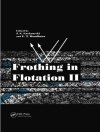The public water supply, urban wastewater and urban waste management services are essential to the well-being of citizens, public health and economic activities. These are generally provided under natural or legal monopoly, so there is no incentive for utilities to search for greater efficiency and effectiveness and as such there is an increasing prevalence of such risks for users. For these reasons, society can significantly benefit from the existence of regulatory intervention capable of introducing greater balance in the relationship between utilities and their users. The Regulation of Water and Waste Services: An Integrated Approach (Rita-Ersar) presents a practical integrated regulatory approach to these water and waste services. This approach is called the ARIT-ERSAR model and it is capable of contributing to the promotion of access by citizens to these services that is tending towards the universal. These services are provided with suitable quality by utilities at socially acceptable prices and with an acceptable level of risk. This approach consists of a regulation model with two major areas of intervention: structural regulation of the sector and regulation of the performance of the utilities. The components of structural regulation are contributions to organisation, legislation, information and sectoral capacity building. The performance regulation of utilities consists of legal and contractual regulation, economic regulation, quality of service regulation, drinking water quality regulation and user interface regulation. Author: Jaime Melo Baptista, Chairperson of the Water and Waste Services Regulatory Authority, ERSAR, Portugal
Jaime M. Baptista
Regulation of Water and Waste Services [PDF ebook]
Regulation of Water and Waste Services [PDF ebook]
قم بشراء هذا الكتاب الإلكتروني واحصل على كتاب آخر مجانًا!
لغة الإنجليزية ● شكل PDF ● ISBN 9781780406534 ● الناشر IWA Publishing ● نشرت 2014 ● للتحميل 3 مرات ● دقة EUR ● هوية شخصية 5456456 ● حماية النسخ Adobe DRM
يتطلب قارئ الكتاب الاليكتروني قادرة DRM












